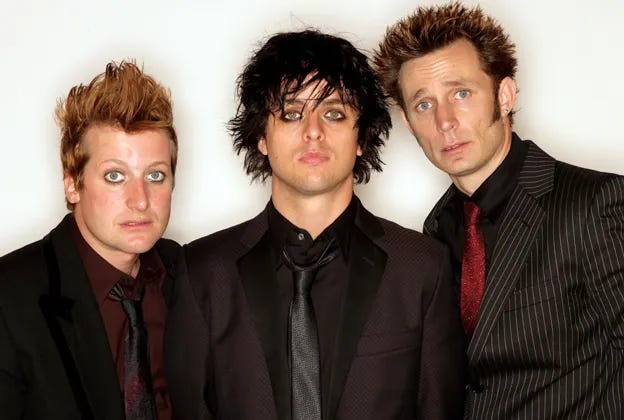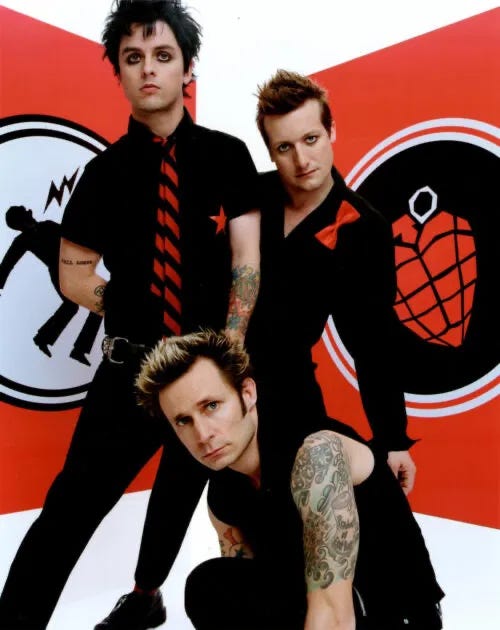‘One Nation Controlled By the Media’ - How The Mass Media Killed Protest Music
I’m sure all of you reading this blog post have a genre of music you identify with. I know that I certainly do (whiny 2000s pop-punk hits the spot for me). From Swifties to Emos, music is the dominant subculture, helping us show the world what we enjoy and how we view ourselves. It provides us with an outlet for our emotions, brings people together and lets us escape from the mundane. It also allows us to define ourselves and our values in greater detail. People assign values to others purely based on what music they listen to. Think of any genre, and I’m sure you have views on what an average listener is like. But, traditionally, music went further than being merely a fun identifier of someone’s character or an escape from reality. It was an avenue for people to express and shape their politics and was a form of protest. Music was a rallying cry for politically frustrated individuals and helped to capture the political zeitgeist of the era. As someone who almost exclusively listens to music from bygone eras, I can’t help but notice the distinct lack of popular protest music in the charts today. This raises the question: whatever happened to protest music? But before we tackle that, let me first give a brief history and explanation of protest music.
Since at least the 1700s, there has been recognisable protest music. The famous American tune ‘Yankee Doodle’ is emblematic of this point. It emerged during the Seven Years War as a derogatory song towards American soldiers from what was then the Thirteen Colonies, but eventually became a song of anti-British pride and protest during the American War of Independence. Ever since this early example, it has been clear that protest songs come about during times of unrest and mass disenfranchisement. Take the Vietnam War, perhaps the most famous era for protest music. During this era, thousands of young American men were being arbitrarily drafted into the military to fight in a bloody conflict over which they had little say. Songs like ‘Fortunate Son’ by Creedence Clearwater Revival captured the political zeitgeist of this era and directly criticised the injustices of the war. This song, as well as others such as ‘War’ by Edwin Starr, provided an outlet for the political frustrations of people right across America and helped people to shape their politics. Both of these examples came about due to the unrest of the era in which they were being written. Moving away from America, it is evident that unrest is a universal driver of protest music. In Ireland, songs like ‘Zombie’ by The Cranberries tackled the unrest and violence of The Troubles and provided a call for peace while criticising both sides of the conflict. Ultimately, protest music aimed to give an accessible message to people about the injustices occurring at home and abroad and gave people a way to vent their frustrations with the current political order. One thing to clarify is that protest music never aimed to change the status quo; It merely aimed to spread a message of discontent, to sow the seeds of change. As such, it should be judged on its message rather than its outcomes.
So, as has been shown, since the dawn of modern music, we have seen protest music appear during times of unrest and disenfranchisement. However, by the early 2000s, protest music had all but disappeared from the mainstream. This is despite the fact that these were times of extreme unrest with 9/11, the wars in Afghanistan and Iraq, as well as an unpopular president and economic uncertainty playing large on the public conscience. Instead, music had taken on an explicitly apolitical tone; just think of any popular song from the early noughties, and you’ll know what I mean. Some music, arguably due to the unique shock of 9/11, was political but in a pro-government sense (just watch this), but there was a distinct lack of political protest music in the mainstream. Protest music did exist; examples include ‘Rock Against Bush’, a project launched by Fat Mike of the band NOFX, but none saw any mainstream success. The one exception to this trend was the release of ‘American Idiot’ by Green Day in 2004.
This album was a major success, charting at Number One in 19 different countries and has gone on to be one of the best-selling rock albums of all time. It managed to achieve such success while being a direct criticism of the Iraq War and Bush-era America more broadly. It was the last roar of protest music. The songs on the album do not shy away from political critique, with the song ‘Holiday’ calling out President George Bush with the line ‘”Sieg Heil” to the president Gasman’, a direct response to accusations that the Iraq War was all about controlling Middle Eastern oil. Other songs like ‘Jesus of Suburbia’ portray youth disenchantment with modern America, while ‘Boulevard of Broken Dreams’ continues this sense of alienation and disenfranchisement with the refrain ‘I walk a lonely road’. The most important political critique on the album comes from its opening track, ‘American Idiot’. In this track, the band criticise mass media as blinding Americans to reality. This is done most clearly in the form of the lines ‘One nation controlled by the media, Information age of hysteria’. These lines present America and Americans as being victims of the media, which, through advancements such as the 24/7 news cycle, has managed to control individuals’ beliefs and actions. This could be in the form of harmless trends or in the form of ‘hysteria’, such as the terror that flowed from 9/11. Ultimately, the critique rests upon the idea that mass media has dumbed down society and culture and blinded us all to the real issues of the day, such as wealth inequality or unjust conflict. It is fitting that this was the last protest album to see any mainstream success, as it explains why protest music has been in decline. That reason is the mass media.
In Ray Bradbury’s dystopian classic ‘Fahrenheit 451’, he identifies the mass media as being to blame for changes in society. In the world of ‘Fahrenheit 451’, this is the banning of books. In the dystopian world of that book, the constant barrage of information from the media has prevented people from critically reflecting on information. Life moves too fast and is so all-consuming due to constant media pressure that people cannot find the time to dig deeper into information. This can be seen to have impacted us in the real world. Since the advent of the 24-hour news cycle, people’s lives have sped up dramatically. We glance at headlines and skim read to try and keep up with the never-ending stream of news given to us by the media. To try and look smart and like ‘we know what we are talking about’, we will read summaries of books, or in terms of music, explanations of the meanings behind songs, rather than trying to find meaning in them ourselves. The rise of the mass media has been compounded by the advent of social media, which in turn has continued to speed up people’s lives. How many of us mindlessly sit and scroll through TikTok’s on two times speed? This has led to a twofold change in society that has directly led to the strange death of protest music. Firstly, people no longer have time for the deep and meaningful. Our lives move so fast in the 21st Century that very few people are willing to sit and listen to a 50-minute-long album and then spend time pondering over its meaning. Secondly, the overwhelming nature of our modern media-driven society, shown through troubling mental health statistics, has led music to become a tool of escapism. We often listen to music to brighten our days or to drown out all the unpleasant noise of 21st-century living. These changes are not conducive to protest music entering the mainstream. The real question is, what can we do about any of this?
Music in 2025 is even more apolitical than it was in 2004 for the reasons mentioned above. I’m not sure I could personally name anything political which reached the top 40 in the past year, unless you consider ‘Espresso’ to be a revolutionary anthem. Despite this, people still clearly yearn for protest music. American Idiot has a continuing relevance to people across the West, with it entering the US Album Chart Top 50 in response to the 2016 and 2024 elections of Donald Trump. It also entered the UK Album Top 40 during Trump’s state visit in 2018, something which I’m sure will happen again after the latest state visit invitation. In addition, the band itself leans into the continued relevance of the album, changing song lyrics to fit current affairs and to show the continued importance of music as a form of protest. Protest bands do still exist, even Green Day still releases protest music, although I’m not sure their talk of ‘TikTok and Taxes’ in their latest album ‘Saviors’ is as effective as the critique provided in American Idiot. With all this in mind, it is evident that protest music still has a place in our hearts and is something that can and does resonate with the current political climate.
Ultimately, our world is in a much more tense and dangerous place than it was even twenty years ago. Economic inequality is rising, global tensions are soaring, and injustice is everywhere. Mass media increasingly dominate our lives, and this is something to be fought against if we as citizens want to remain in control. This is not a rallying cry to go out and create bands ourselves. Instead, a good place to start would be to reacquaint ourselves with the protest music of the past, to show that we do still engage with the deep and meaningful. Perhaps we should start with American Idiot?
Thomas Worth
Sussex University Politics Blog
26/03/2025



